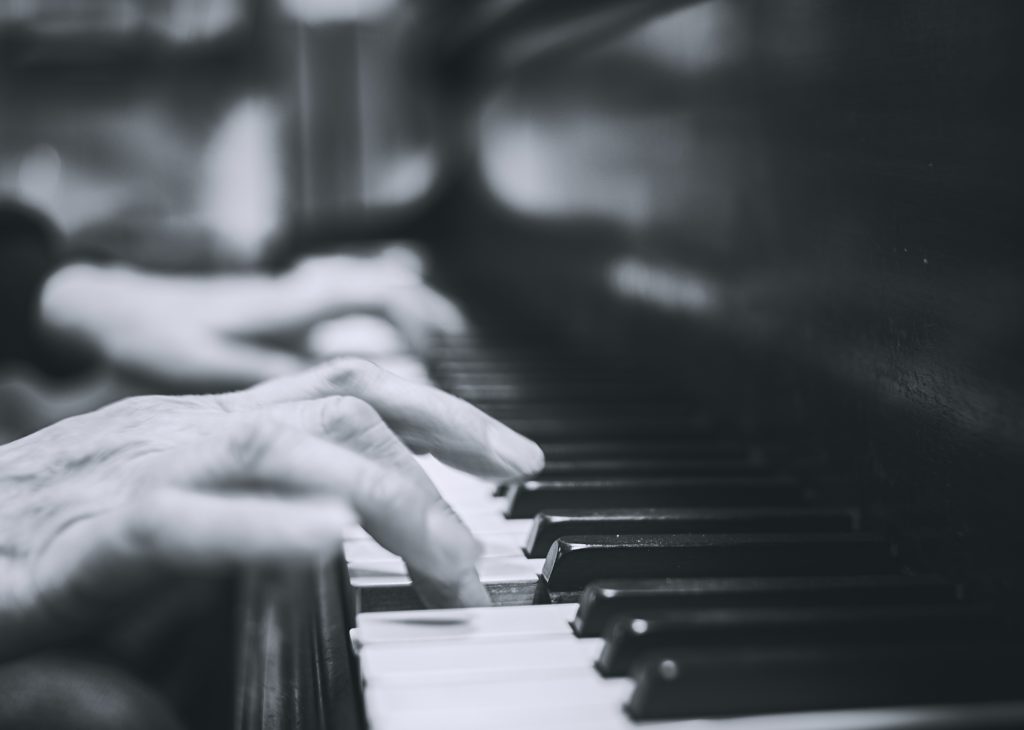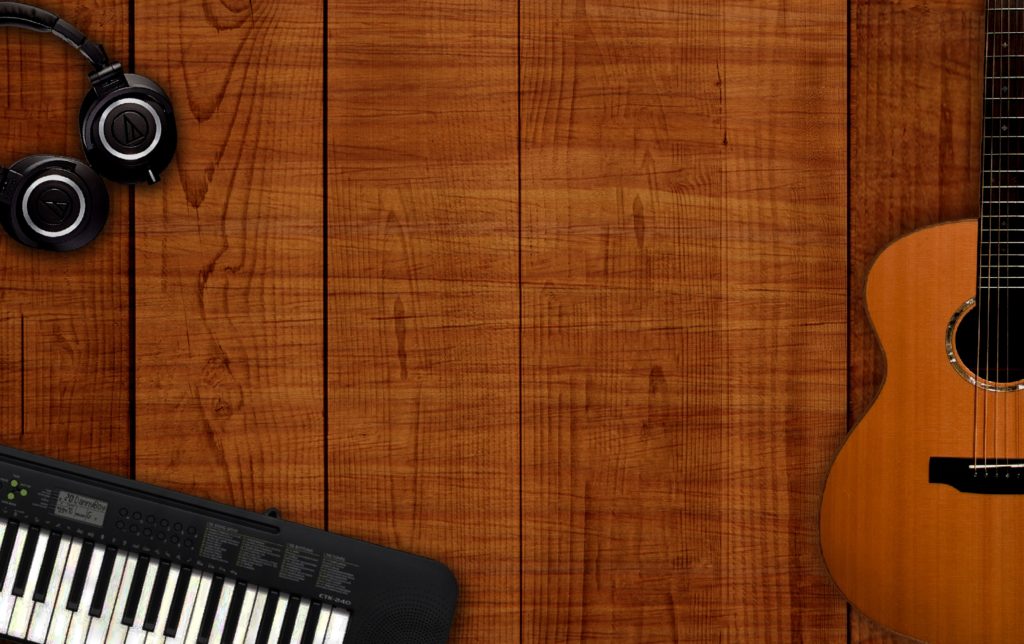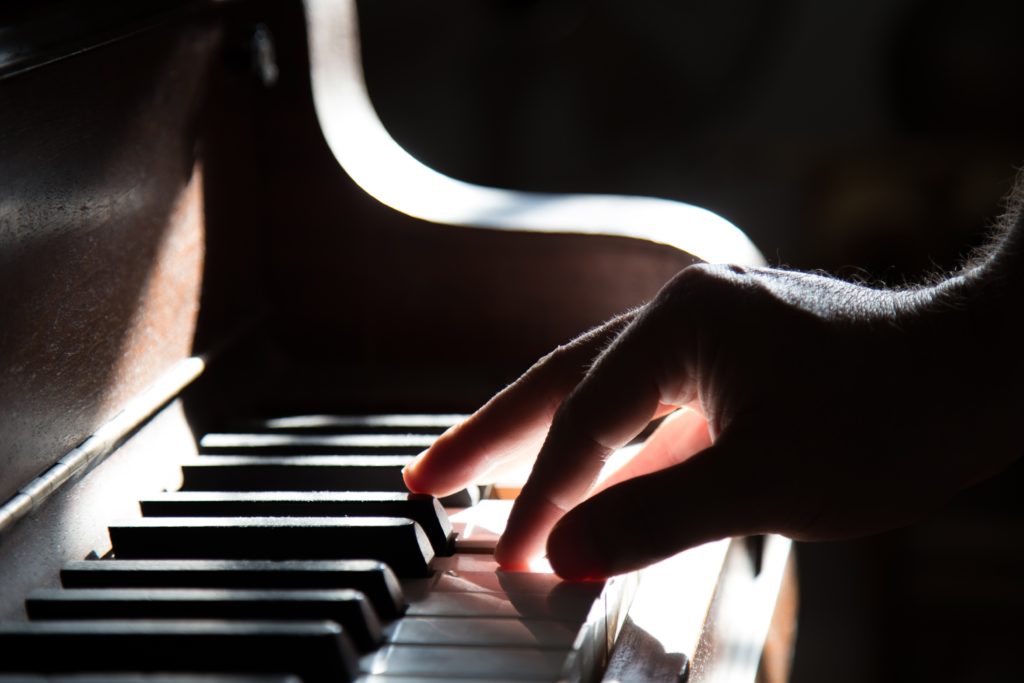Authored by Marci Ricklick & Richard J. Chandler, BA, MA
Bartolomeo Cristofori (1655-1731) of Italy invented the piano over three centuries ago to improve upon the clavichord and the harpsichord. Pianos are used for informal musical gatherings, recitals, and concerts, accompany singers and instrumentalists, and for educational purposes.
The piano’s many uses, coupled with the benefits of playing it, make learning the piano worthwhile for children, adults, and musicians. Besides the musical benefits, piano skills help make learning easier for kids, improves mental health, and helps make musicians well-rounded.
Let’s dive into why learning piano is worth it for anyone from age 4 to 104.
Piano Perks for Children
There are a variety of reasons to have your child take piano lessons. These include:

Learning Discipline & Concentration
- To become skilled on piano, practicing 30 – 60 minutes daily helps.
- Depending on a student’s goals, 2-3 hours could be required to develop advanced piano skills.
- Consistently practicing day-in and day-out make pianists proficient.
Better Grades
According to WebMD, elementary students who study an instrument for 18 months or longer, “scored higher than the other children on cognitive tasks such as planning, memory, and problem-solving. After 2½ years, the differences became pronounced, with those in the music groups also scoring 14% to 18% higher on arithmetic and language tests and about 15 points higher on IQ tests than the no-arts group.”
Musicianship Improvement
Because the piano is both a melody and a harmony instrument, young musicians learn:
- How to construct music. Harmony includes how chords support the melody
- How the music’s harmony moves through harmonic progressions
- Music theory through playing and analyzing the music learned
- How to play in-tune. As long as the piano is in tune, beginning musicians learn the correct sound of each pitch
Those skills transfer to other musical activities like becoming better singers, instrumentalists, composers, arrangers, and conductors.

Learning Piano Increases Your Community Belonging
Even though the piano is more of an individual instrument, students will receive the benefits of social interaction during recitals and weekly lessons. Playing in groups allows children to learn teamwork and to improve their musical talent by learning to adjust their playing to that of the rest of a group.
Examples include:
- Adjusting how soft or loud to play.
- Matching ensemble’s tempo by learning to play together rather than playing faster or slower than the rest of the group
Being a part of a community can foster friendships and therefore decrease the risk of developing emotional issues like depression.
Musicianship Improvement by Expanding Your Musicality Skill Set
Because the piano is both a melody and a harmony instrument, young musicians learn:
- How to construct music. Harmony includes how chords support the melody
- How the music’s harmony moves through harmonic progressions
- Music theory through playing and analyzing the music learned
- How to play in-tune. As long as the piano is in tune, beginning musicians learn the correct sound of each pitch
Those skills transfer to other musical activities like becoming better singers, instrumentalists, composers, arrangers, and conductors.
Examples of Improved Musicianship include:
- Adjusting how soft or loud to play.
- Matching ensemble’s tempo by learning to play together rather than playing faster or slower than the rest of the group
Being a part of a community can foster friendships and decrease the risk of developing emotional issues like depression.

Piano Study and Practice Enhances Dexterity
Playing the piano refines the player’s fine motor skills according to a Music and Health study (http://www.musicandhealth.co.uk/articles/WatsonReview06.pdf),
Pianists have transformed their cortical mapping through their many hours of practice, creating new synaptic connections. They reorganize their cortical motor map leading to increased finger speed. Coordination in the hands and arms becomes fine-tuned and can even help develop ambidexterity.
Playing the Piano Increases Your Appreciation of Music
Students who learn to sing or play an instrument:
- By learning to read music, people learn to appreciate music on a technical and emotional level
- Appreciation of music increases once students experience the time, commitment, and work to learn to play songs and compositions.
- The piano is an ideal instrument for creating music. Doing so gives children a much greater appreciation for music as they gain first-hand experience of the work that goes into developing their songs, melodies, and harmonies.
Studying Piano As An Adult
Learning to play the piano is just as worthwhile for adults to learn as it is for kids. Though it may initially take a little longer to make progress than for a child, learning the piano is time well invested in both your mental, physical, and emotional health. Piano benefits for adults comprise of:
- Actively Engaging in the Joy of Music. Learning piano creates an excellent “unplugged” outlet for entertainment and releases positive brain chemicals, like serotonin, when we play music, making us happier people.
- Ease of Learning. The piano is one of the quicker and more accessible instruments to learn since you don’t need to worry about playing in tune.
- Play Accompaniments. The piano is quite versatile for a solo performance or to accompany:
- Dancers
- Choirs
- Solo vocalists
- Instrumentalists
- Note: Being able to accompany other musicians doesn’t just have to occur as a formal performance in a professional setting. You could be playing the piano along to your relatives singing Christmas carols for a holiday party or playing “piano 4-hands” with friends and family.
Piano Study Improves Health & Cognitive Functions

Study of Musicians’ Brain Function Shows Differences with Non-musicians
A study from National Geographic showed that musicians have higher amounts of gray and white matter than the brains of non-musicians. Gray matter deals with muscle control and sensory perceptions. White matter shows your brain’s ability to adapt to experience, environment, or behavior.
Alison Balbag, MD, a doctor of gerontology, stated: “What’s unique about playing an instrument is that it requires a wide array of brain regions and cognitive functions to work together simultaneously, in both right and left hemispheres of the brain.”
Overall Health Advantages
The Piano Emporium’s website stated that regular piano playing helps to “sharpen fine motor skills, improve dexterity and hand-eye coordination. Music has also been shown to reduce heart and respiratory rates, cardiac complications, and to lower blood pressure and increase immune response. Playing the piano also makes your hands and arm muscles much stronger than the average person.”

Why Musicians Who Play Other Instruments Benefit from Learning the Piano
Even if you already know how to play other instruments, or sing, developing piano proficiency is often required by music schools and music departments of colleges and universities. By beginning one’s musical studies on the piano, musicians gain a strong base of music knowledge in music theory, melody, and harmony.
Those fundamentals will transfer to any other instruments a musician chooses to learn. If you are serious about your musical studies, and perhaps studying music at the college level, it is in your best interest to start learning piano while in high school or even earlier.
Knowing piano doesn’t just help you get into music school, but also helps you with:
- Becoming a Well Rounded Musician. Musicians who know how to play the piano are well-rounded. Playing the piano helps you learn to:
- Read standard music notation
- Develop hand independence
- Become comfortable playing solos
- Teaching Students. It is beneficial for musicians who teach others to play simple accompaniments on the piano for their students.
- Understanding Harmony and Music Theory Better. If you only play a melody instrument like the flute or the saxophone, you won’t directly learn harmony and music theory; but by playing the piano, you will. Knowing music theory and understanding how music structure works can help you read music faster, play more fluently, and recover quicker when you play the wrong notes.
- Songwriting. By learning music theory by playing the piano, you will be better at selecting chords that are used in great songs and therefore improve your compositions.
The Key Takeaways for Deciding if Learning the Piano is Worth it for You
Learning the piano can be worthwhile to learn for anyone. Whether you are intrigued by the piano and the beautiful sound it creates, you want a new hobby or keep your brain sharp; the piano is a great choice.

The piano is an extraordinary instrument for:
- Learning discipline & concentration
- Getting better grades in school
- Improving your musicianship
- Being a part of a community
- Enhancing your dexterity
- Appreciation of music
- Entertainment
- Playing accompaniments
- Improved cognitive functionality
- Overall health advantages including lowering your blood pressure
- Becoming a well-rounded musician
- Bettering your teaching skills
- Understanding music theory better
- Mastering songwriting